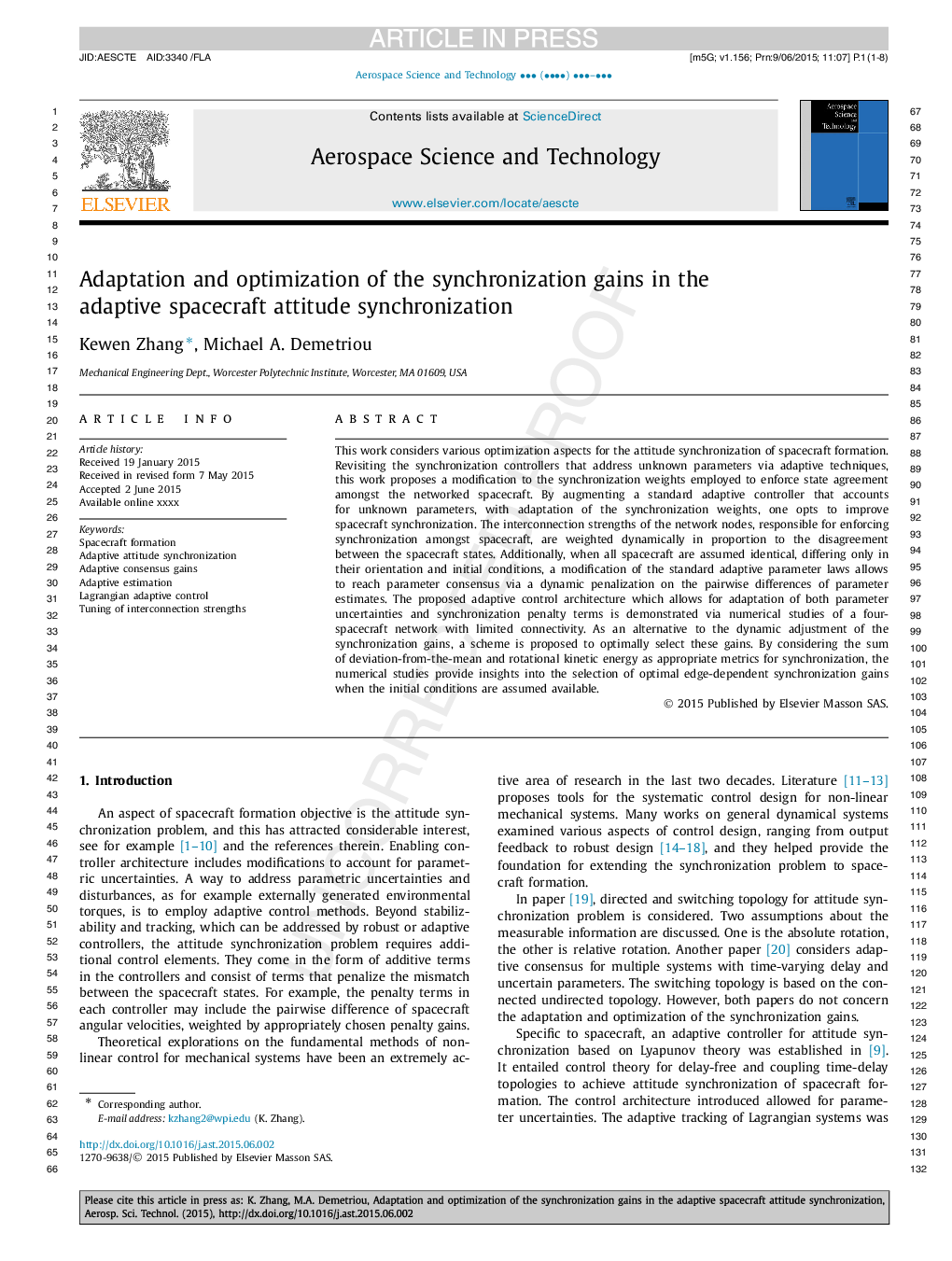| Article ID | Journal | Published Year | Pages | File Type |
|---|---|---|---|---|
| 8058813 | Aerospace Science and Technology | 2015 | 8 Pages |
Abstract
This work considers various optimization aspects for the attitude synchronization of spacecraft formation. Revisiting the synchronization controllers that address unknown parameters via adaptive techniques, this work proposes a modification to the synchronization weights employed to enforce state agreement amongst the networked spacecraft. By augmenting a standard adaptive controller that accounts for unknown parameters, with adaptation of the synchronization weights, one opts to improve spacecraft synchronization. The interconnection strengths of the network nodes, responsible for enforcing synchronization amongst spacecraft, are weighted dynamically in proportion to the disagreement between the spacecraft states. Additionally, when all spacecraft are assumed identical, differing only in their orientation and initial conditions, a modification of the standard adaptive parameter laws allows to reach parameter consensus via a dynamic penalization on the pairwise differences of parameter estimates. The proposed adaptive control architecture which allows for adaptation of both parameter uncertainties and synchronization penalty terms is demonstrated via numerical studies of a four-spacecraft network with limited connectivity. As an alternative to the dynamic adjustment of the synchronization gains, a scheme is proposed to optimally select these gains. By considering the sum of deviation-from-the-mean and rotational kinetic energy as appropriate metrics for synchronization, the numerical studies provide insights into the selection of optimal edge-dependent synchronization gains when the initial conditions are assumed available.
Related Topics
Physical Sciences and Engineering
Engineering
Aerospace Engineering
Authors
Kewen Zhang, Michael A. Demetriou,
